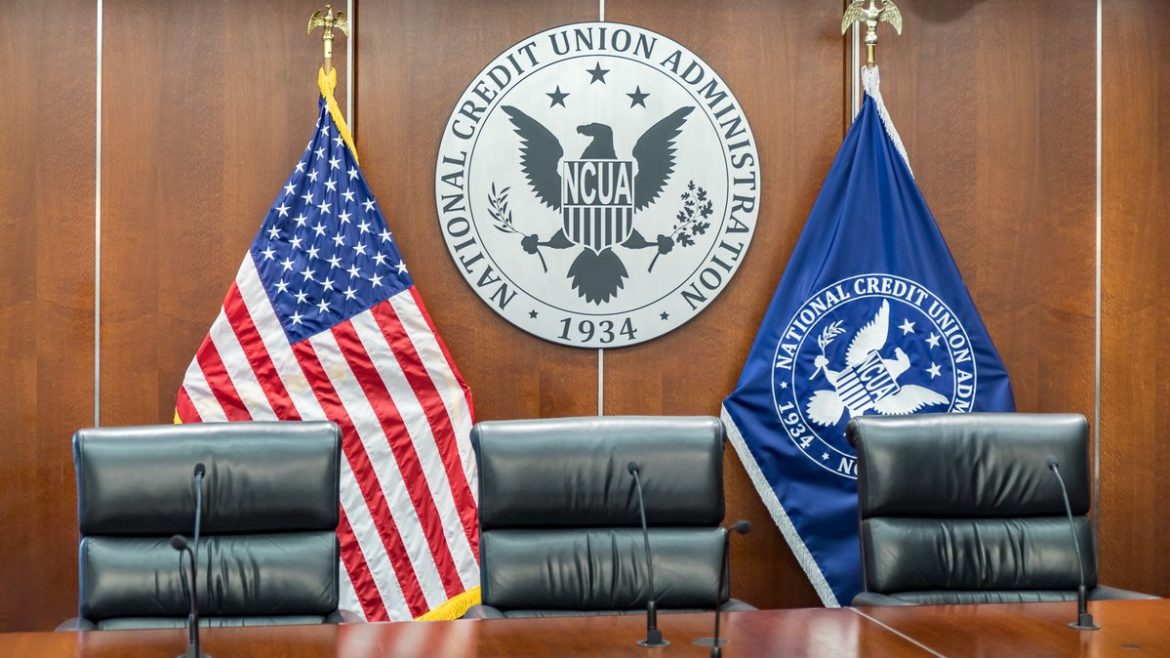The National Credit Union Administration announced on Wednesday that President Donald Trump designated Kyle Hauptman to serve as the Chairman of the NCUA Board. Hauptman was nominated to the board in June 2020 and designated Vice Chairman under Chairman Todd Harper in December 2020. He becomes the thirteenth Chairman of the NCUA.
Speaking as Chairman, Hauptman said, “I am deeply honored that President Trump has asked me to serve as Chairman of NCUA. I look forward to leading the agency’s dedicated professionals and working with my Board colleagues to create a regulatory structure that promotes growth, opportunity, and innovation within the credit union system.”
In the announcement, Hauptman identified eight priorities he plans to focus on as Chairman:
- Re-examining the current NCUA budgeting process.
- Convening groups of NCUA employees to identify achievable internal efficiencies to reduce unnecessary frictions in the agency’s operations.
- Promoting the appropriate use of artificial intelligence (AI) as a tool for NCUA employees. One goal is enhancing productivity, but it’s also true that regulators who use technologies are more apt to understand why the regulated use them.
- Focusing on true financial inclusion, which means removing barriers to de novo credit unions and removing the ‘pain points’ that have led to fewer and fewer small credit unions. NCUA should be mindful that the only people who think compliance is easy are those that don’t have to do it.
- Codifying our procedures to protect Americans from regulation-by-enforcement. For example, no enforcement action should ever set – even clarify – policy. In America and other free societies, the sequence is: set speed limits, then give speeding tickets (no one has any obligation to be aware of someone else’s ticket).
- Making clear that credit unions and their members are best positioned to assess their communities’ climate risks.
- Re-assessing NCUA policies that may, even inadvertently, dissuade credit unions from serving low-income areas. This includes language around overdraft policies, particularly for credit unions located in states with especially punitive government late fees/penalties.
- Right-sizing credit unions’ obligations where possible under the Bank Secrecy Act, including NCUA’s regulations surrounding Suspicious Activity Reports.
Many of these priorities should come as no surprise. For example, Hauptman has advocated for the use of technology in addressing the needs of smaller credit unions and underserved communities. At his swearing in to the NCUA Board in 2020, Hauptman had said, “I want to expand technology’s role in reaching the underserved because innovation can provide more inclusive financial services.”
Hauptman has also been a vocal advocate for simplifying the process of starting credit unions, telling the National Association of Federally-Insured Credit Unions in 2021 “The American people should decide how many credit unions there are, not the NCUA.” Since then, he has worked to lessen the number of hurdles new credit unions must face when seeking charter approval and launching, but still sees room for improvement for NCUA and the Office of Credit Union Resources and Expansion (CURE).
At the Board’s 2024 meeting, he said, “If we’re making it hard for any group of Americans to decide to have their own financial service provider, we are only paying lip service to all the words like “financial inclusion” and everything. And for over ninety years forming a credit union has been the answer to financial inclusion. Hundreds of thousands of immigrants, religious groups, factory workers, or more—Americans should decide how many financial service providers we have. Every single one of the charters ever granted, it was somebody out there who wasn’t totally satisfied with the existing financial services marketplace.”
He went on to say how the first 3,000 credit unions formed prior to the 1934 Federal Credit Union Act had the benefit of not having to go through Washington to get something done, make it easier and faster to get established. By comparison, today’s application process continues to be a sticking point for Hauptman, stating that if the NCUA doesn’t see a completed application because the process is so difficult, there’s never going to be the data to show how many opportunities were actually lost. And so though he lauded the work being done, he warned that there is still room to grow for NCUA.
Hauptman is also likely to look at the NCUA’s budget with a stern eye, as he’s often been a vocal critic of the ballooning budget. After industry criticism of the NCUA’s then-proposed 2023 operating budget, Hauptman echoed some of the cynicism of whether the requested increases were necessary: Prosperity is wonderful, and I wish everyone had it. I will say that during the pandemic, when [we were] doing virtual meetings, I was struck how many NCUA employees were at their second home. And that’s great for them; in this country, we celebrate success and abundance. But I think we all understand why the general public looks at DC with something approaching disdain.”
With Hauptman’s term ending August 2025, what he can achieve in the next eight months remains to be seen.

























































